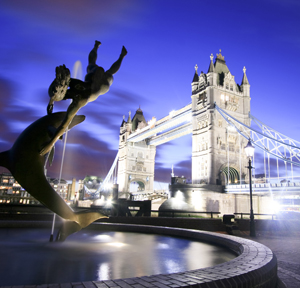The Lords' Prayer: stop us from being counted as PEPs
Chris Hamblin, Editor, London, 10 March 2015

The legislators of Westminster want the European Union's upcoming fourth money-laundering directive to do something about the excessive scrutiny that banks subject them to as 'politically exposed persons.' Their prayers are likely to go unanswered.
There has been much fluttering in the dovecotes of Westminster, with many of their Lordships complaining about their status as politically exposed persons or PEPs. In October last year Lord Deighton, the Commercial Secretary to HM Treasury, told his peers that under the third money-laundering directive, enacted in Brussels in 2005, "UK parliamentarians are not currently considered to be PEPs domestically," but added that "revised global standards to which the UK is fully committed will require that they are treated as such."
It is true that the Financial Action Task Force, the world's anti-money-laundering standard-setter, has decreed that all nations should include certain important or national domestic politicians as PEPs in their laws and the fourth directive - still in the final stages of being passed - is bound to enforce this decision. Westminster politicians, however, are complaining about being counted as PEPs at all, on the grounds that they are conspicuously powerless unless they hold office.
No-one expects the Spanish Inquisition!
Lord Clement-Jones (Liberal Democrat) complained: "Even before the fourth directive has come in, many members of this House and their relatives are being treated as PEPs. I myself and my son were unable to access an ATM and my brother was unable to exercise a joint power of attorney. What steps is the Treasury taking to show members of Parliament in both Houses that in future they will not be treated in exactly the same way as a deposed dictator or a political pariah?"
Lord Harris of Haringey (Lab) had another tale of woe: "Perhaps the minister will explain that to the clearing banks in this country. Perhaps he could explain why my daughter, who was then aged 12, was required to appear with her driving licence and a utility bill in her name in order to be allowed to have a savings account with no more than £40 in."
Lord Wright of Richmond (cross-bencher) said that his two sons had tried to open bank accounts in Singapore and in New York. In both cases they were asked who their father was. When they revealed the fact that he was a member of the House of Lords, the banks refused them accounts.
Lord Levene of Portsoken (cross-bencher) added: "I have to say, from personal experience of having an account in France to look after the small needs of the home that I own there, that one is treated as if it were the Spanish Inquisition."
Lord Deighton blamed over-zealous banks for such treatment and added that, in the main, British parliamentarians should be assessed as 'low risk' and treated in precisely the same way as any other customer. He also claimed that when banks behave 'disproportionately' in this way the best place to lodge a complaint would be with the Financial Ombudsman Service. He did admit, however, that banks' assessment of whether an applicant for business poses a high risk or not "is not working well enough at the moment."
The list of PEPs
Things are likely to continue as they are, as the latest draft of the forthcoming directive lists members of legislatures as PEPs. The full list (which many experts think will not change from now on) is as follows.
* Heads of state, heads of government, ministers and their deputies.
* Members of legislative assemblies.
* Members of the governing bodies of political parties.
* Top judges.
* People on the boards of central banks.
* Ambassadors, presumably because much smuggling is often done through the 'sac diplomatique'.
* High-ranking military officers.
* People at the top of state-run enterprises.
* Directors of international organisations.
Some statistics
The FOS received around 50 complaints about PEPs in 2013 and 30 in the first three-quarters of 2014. Some 150,000 people are rated as PEPs in the UK, among them virtually all parliamentarians, all their spouses and all their children. The FATF has not called on nations to include nephews and nieces - an egregious oversight with which the EU has gone along. Lord Flight (Conservative) complained: "Worst of all, banks are required to look at every transaction in the account of a PEP, both in and out, to satisfy themselves that they are proper transactions. The world of PEPs is by no means limited to just those who someone thinks are high risk. It covers virtually everybody and is completely out of control."












